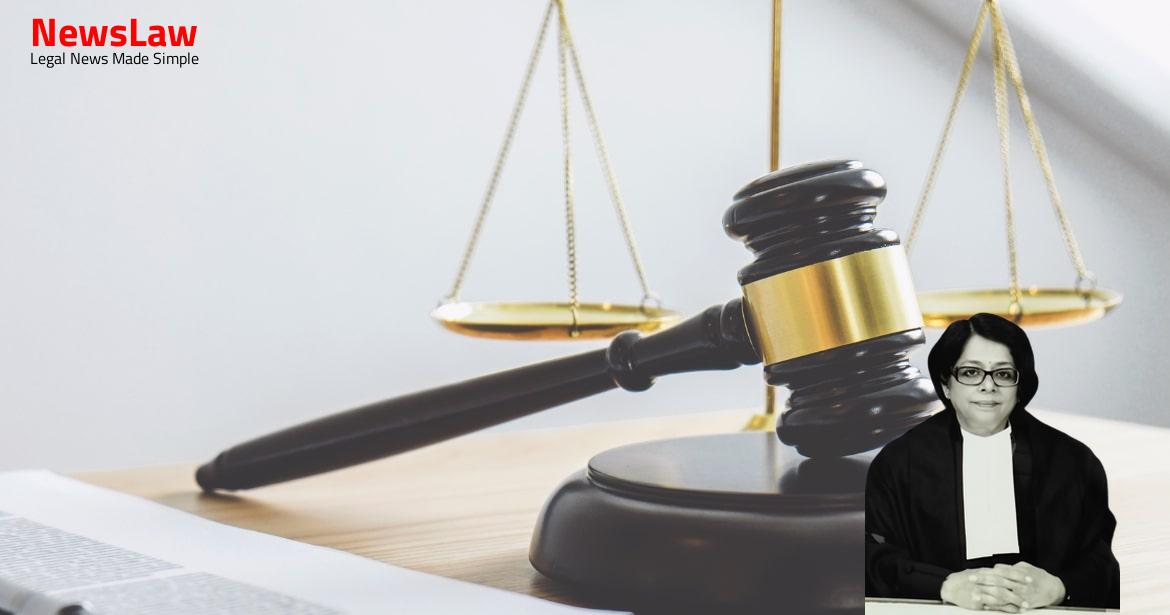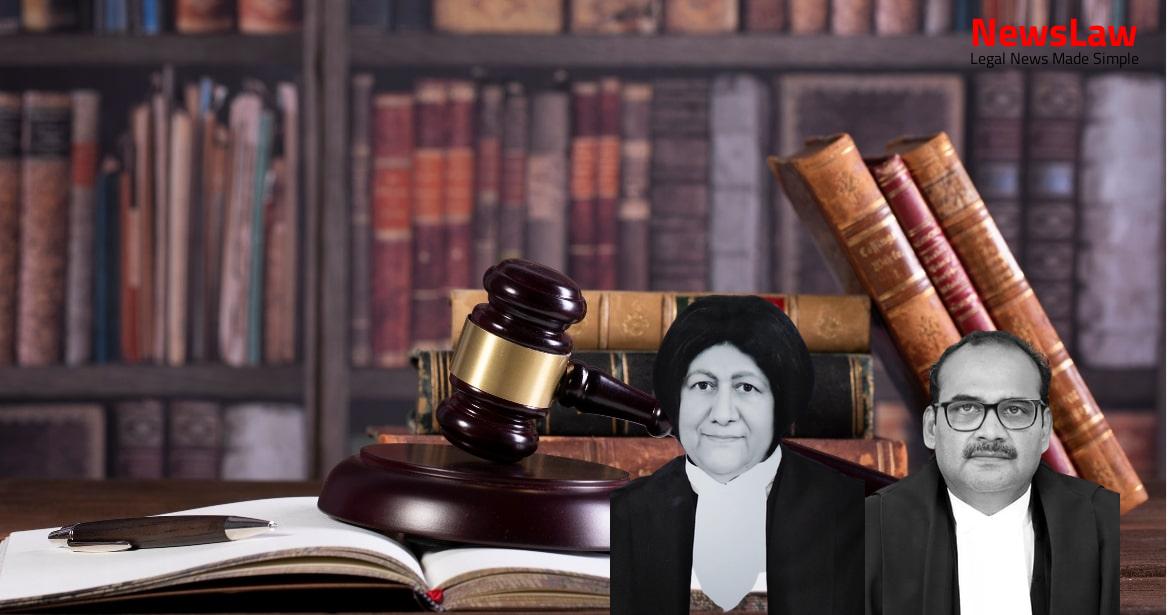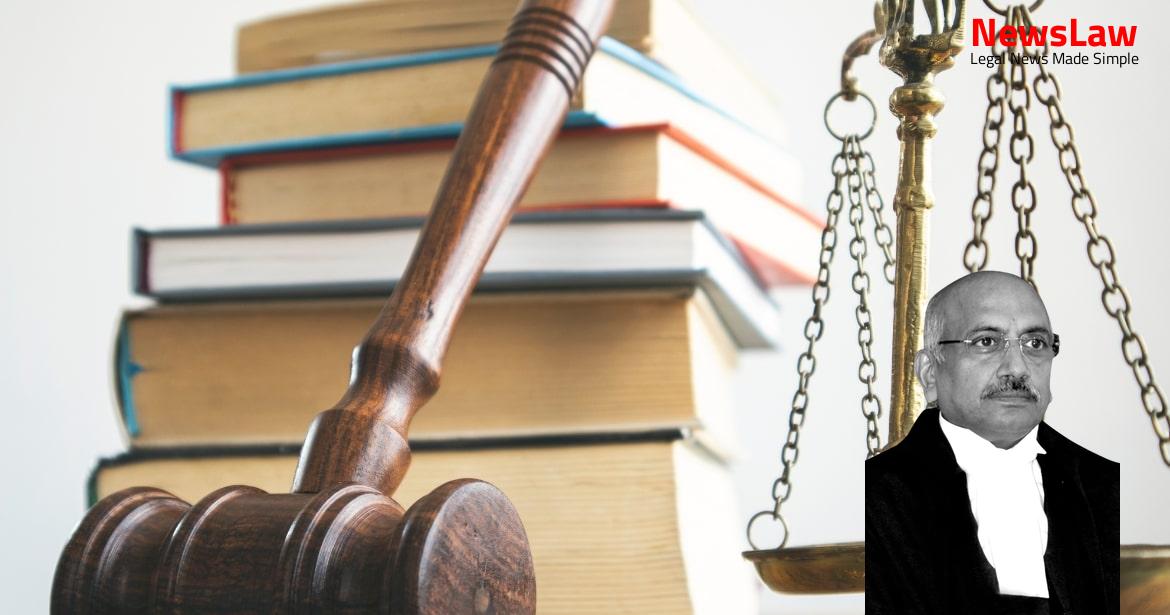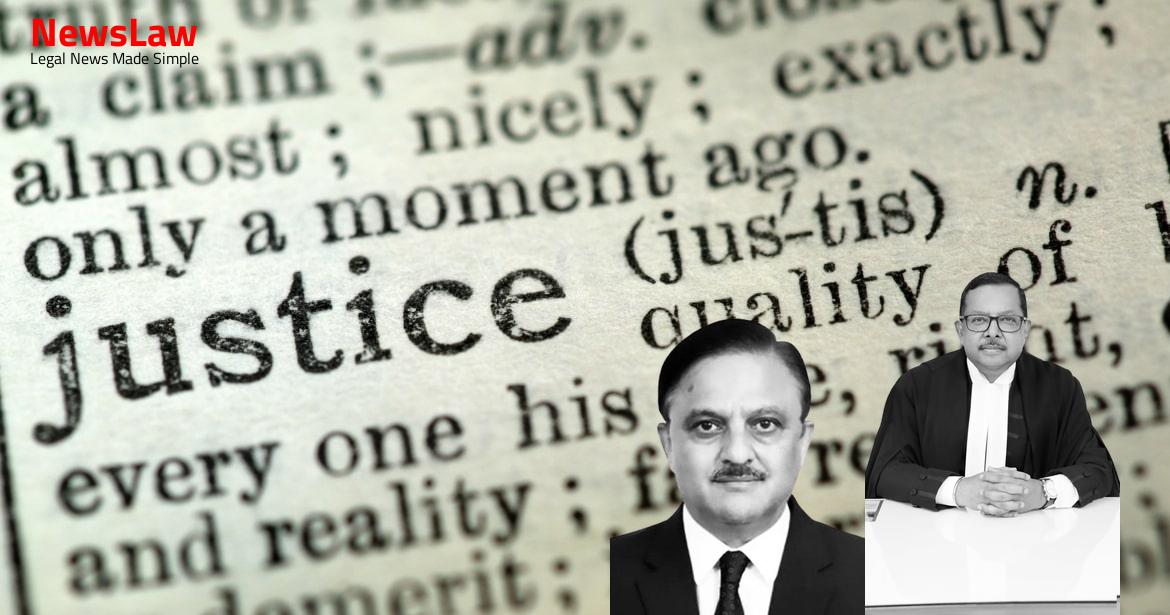Delve into the detailed legal analysis provided by the court in a recent case regarding managing committee elections and disputes over membership. The court’s examination of bylaws, committee powers, and procedural aspects sheds light on the intricacies of organizational governance and legal frameworks surrounding such matters.
Facts
- The Managing Committee is directed to convene an Annual General Body Meeting within 7 days for holding elections for the period 2018-2021.
- The AGM shall be supervised by Shri Suraj Vernekar, Civil Registrar-cum-Sub Registrar, as an observer.
- Election of managing committee members should be the first agenda item.
- The newly elected managing committee may frame necessary rules for regulating its affairs.
- Suggestions for formulating rules on certain issues are provided due to existing gaps in the bylaws of the society.
- High Court held that no confidence motion cannot be maintained even in absence of provision in the bye-laws
- Refused to interfere with the impugned order dated 9th March 2018 of the District Registrar
Also Read: Legal Analysis on Diplomatic Immunity Exception Case
Arguments
- The 23 respondent-Society is not a co-operative society.
- The appellants cannot claim the principle of open membership as envisaged in Section 22 of the Goa Co-operative Societies Act, 2001, to apply to them.
- The central question in this appeal is whether the invalidation of membership of the appellants and the impleaded appellants, solely on the ground that the then Managing Committee demanded by the majority of existing members of the Society, is just and proper.
- At best, the applications of the 22 members may be considered afresh.
- The appellants argued that as per clause 1(c) of the bye-laws of the Society, a person automatically becomes a member upon submitting the application and fees.
- The High Court had emphasized the need for expeditious conduct of elections.
- The appellants were accused of colluding with the Society by filing a fresh appeal on the same day after dismissal of the previous SLP.
- The Authority conducted elections as per the Constitution’s 97th Amendment, which was challenged but deemed valid by the Authority.
- The democratic principles discussed in Vipulbhai case were deemed applicable to cooperative societies and other societies as well by the Solicitor General for the Authority.
- The appellants were deemed to have no vested right or locus to file the appeal since they were not members on the date of the elections.
- The High Court found no illegality in admitting members on the eve of elections or at the end of the Managing Committee’s tenure.
- The argument that the Vipulbhai case does not apply as the Society is under the 1860 Act, not a cooperative society, was presented.
- The induction of the appellants into the Society was upheld by the Authority due to the Managing Committee’s inaction in holding elections.
- The appellants argued that their induction as members was valid according to the Society’s bye-laws and relevant court judgments.
- The High Court’s decision that office bearers can be unseated despite bye-law provisions in democratically governed bodies was supported.
- The Authority’s decision to conduct elections despite the pending appeal was criticized by the appellants as an abuse of process.
- The 22 persons inducted into the Society were accused of being part of a scheme to alter the Society’s composition in favor of the then office bearers.
- Allegations of hastening elections by the Authority despite knowledge of the pending appeal were made by the appellants.
- The Managing Committee’s role and powers during a no-confidence motion were discussed in connection to their fiduciary duties towards the Society.
Also Read: Autonomy of Private Unaided Schools in Fee Determination
Analysis
- High Court upheld the decision of the Registrar regarding induction of new members
- Registrar found that the Managing Committee acted with material irregularity by refusing to hold SGBM
- Appellants had submitted applications before the no confidence motion was moved
- The decision of the Managing Committee to admit new members while facing a no confidence motion was deemed illegal and arbitrary
- Registrar’s order regarding dismembering the appellants from the Society was upheld by the High Court
- Appellants had the right to challenge the decision of the Registrar and the High Court
- Appellants were eligible for membership and had submitted the required documents and fees
- Decision of the Managing Committee to admit 22 new members hastily was considered a colorable exercise of power and non-est in the eyes of the law
- Rejection of the SLP filed by the Society does not prevent the appellants from pursuing their case
- The Society filed a writ petition against an order passed by a statutory authority regarding resolutions passed by its Governing Body or Managing Committee.
- The High Court framed and adjudged five issues, including the Society’s right to maintain a writ petition, the validity of the Registrar’s order, and the legality of new member inductions by the Managing Committee.
- The fourth issue focused on whether the Managing Committee committed an illegality by not convening a Special General Body Meeting upon the request of 18 out of 32 Society members.
- The High Court referenced the decision in Vipulbhai M. Chaudhary v. to address the issue.
- The judgment also examined the power of the Registrar to rule on allegations of mismanagement by the Managing Committee.
- The case of Vipulbhai M. Chaudhary establishes that the statute or byelaws should provide for the unseating of an office bearer.
- This ruling clears any doubts on this matter.
- The decision in this case is considered conclusive on the issue.
- Appellants should succeed to a limited extent in the present appeal.
- Newly constituted Managing Committee should consider matters on a case-to-case basis on its own merits.
- Decisions should be made in accordance with the law, uninfluenced by any previous observations.
- If a decision is adverse to an applicant, further legal remedies may be pursued.
- No finding of ineligibility of the appellants by the Registrar or the High Court.
- The Managing Committee’s decision on 17.09.2017 was deemed illegal and a colourable exercise of power.
Also Read: Land Ownership Dispute Legal Analysis
Decision
- Final date of election to be fixed later after withdrawal of Section 144 of Cr.P.C., 1973 due to Covid-19 lockdown.
- Registrar conducted elections on 25.06.2020 subject to the outcome of the Special Leave Petition.
- 22 dismembered persons may file independent Special Leave Petitions to challenge High Court’s decision.
- Writ petition dismissed, pending applications disposed of.
- Authority conducted elections on 25.06.2020 and constituted a new Managing Committee.
- Petitioners advised to file a formal application for appropriate reliefs.
- List the petition high on the supplementary board on 31st October 2017.
- Amendment to be carried out without verification by 10th October 2017.
- Inspector General to decide the matter on its own merits as per law.
- Parties to be relegated to the stage before 17.09.2017, pending applications to be deemed revived.
- Applications for grant of membership to be considered by the newly constituted Managing Committee on its merits.
- Appeal partly succeeded in clarifying/modifying the Registrar’s operable order.
- Newly inducted members may join the Society.
- Election process continuation challenge not maintainable until appellants granted membership.
- Appeal disposed with permissions granted for an additional prayer and affidavit.
- Inspector General directed to consider additional grievance made by the Petitioner.
Case Title: SWATI ULHAS KERKAR Vs. SANJAY WALAVALKAR (2021 INSC 74)
Case Number: C.A. No.-000412-000412 / 2021



